21 Amazing Benefits Of Zucchini For Skin, Hair, And Health
Be it improving your vision or strengthening your bones, this fruit has many things to offer.
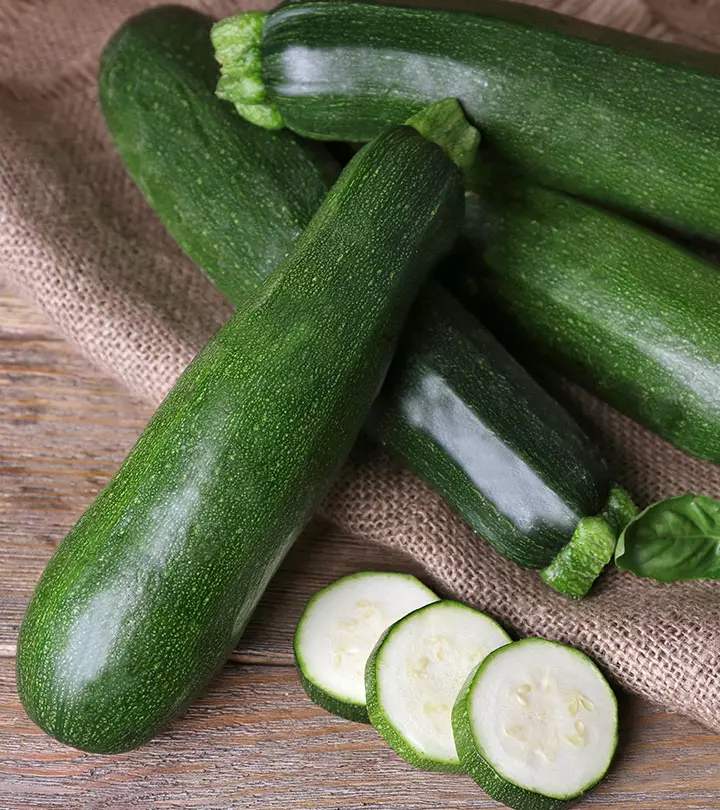
Image: Shutterstock
The many benefits of zucchini will persuade you to include this summer squash in your diet. Zucchini has a unique nutritional profile and is full of vitamin C, pyridoxine, manganese, and potassium. These nutrients give it a range of health-promoting properties. Zucchini may promote weight loss and promote eye, gut, and heart health. What makes it full of benefits? How can you include it in your diet? We can help you with the answers. This article will look into the amazing health benefits of zucchini, its nutritional content, and how to add it to your dishes. Scroll down.

 Know Your Ingredient: Zucchini
Know Your Ingredient: ZucchiniWhat Is It?
It is a type of summer squash vegetable that belongs to the species Cucurbita pepo.
What Are Its Benefits?
Zucchini is low in calories and is rich in vitamins and minerals, which may help in weight loss, improve heart health, lower cholesterol and blood pressure, and control diabetes.
Who Can Consume It?
Everyone except for those who have irritable bowel syndrome, take beta-carotene supplements or have under angioplasty, or are on cholesterol-lowering medication.
How Often?
Zucchini can be consumed daily, however, it should be in moderation.
Caution
Overeating zucchini may cause digestive issues like diarrhea and cramps and even neurological diseases like Alzheimer’s.
In This Article
What Is Zucchini?
Also known as courgette, zucchini is a summer squash that is native to the Americas. It belongs to the species Cucurbita pepo, along with a few other types of squashes and pumpkins (1). It usually is dark or light green. The golden zucchini (yellow zucchini), another variety, is orange/deep yellow in color. Yellow squash, often mistaken for yellow zucchini, is actually a different variety with a unique curved shape and bumpy texture. Although both are summer squashes, they differ in flavor and texture.
 Fun Fact
Fun FactKey Takeaways
- Zucchini helps promote skin health, improves heart health, and lowers cholesterol levels.
- The proteins and zinc present in zucchini aid in promoting healthy hair growth and enhancing scalp health.
- Consumption of zucchini may cause diarrhea and allergies in some people.
- You can add zucchini to your salads or stuff it with cheese or meat.
Types Of Zucchini
Zucchini comes in numerous varieties. A few of the popular ones are:
- Aristocrat, where the fruit has waxy skin and is medium green.
- Gold Rush, where the fruit is golden.
- Black Zucchini, where the skin is dark green, and the fruit has white flesh. This is the most common variety of zucchini.
- Zucchini Gadzukes, a green fruit with distinct light green ridges.
And now we get to the real deal – how zucchini benefits your health.
Benefits Of Zucchini
1. Zucchini Benefits For Weight Loss

As we have already discussed, zucchini is a low-starch fruit. Which means it is low in carbohydrates and high in fiber (2). Which means it will fill you up and discourage overeating. That’s precisely what most people looking to lose weight want, right?
The fruit also has a high water content that can keep you full for longer periods. It is one of those foods with a low glycemic index. Increased intake of fruits and vegetables and low-fat foods has been linked to healthy weight loss and weight maintenance (3). Another benefit of high-fiber foods is they require more chewing – because of which the individual takes more time to eat and is unable to gorge on a large number of calories in a short period (4).
2. Improves Heart Health
Ever heard of DASH diet? Also called the Dietary Approaches to Stop Hypertension, this diet is aimed at improving heart health by lowering hypertension
. According to a report published by the National Heart, Lung, and Blood Institute, zucchini is a prominent part of the DASH diet (5).
Zucchini is low in cholesterol, sodium, and fat, and helps maintain a balance of carbohydrates – a requirement for optimum heart health (6).
Another reason zucchini works great for the heart is the presence of fiber. High intakes of fiber have been associated with significantly lower risks of developing stroke, hypertension, and heart disease (7).
Zucchini is also rich in folate, and as per a Chinese study, folate intake is inversely associated with heart disease risk (8). The fact that it is rich in other nutrients like potassium and magnesium makes zucchini a superfood for the heart. Research has stated that deficiencies in the two nutrients can be directly linked to heart failure (9).
Another nutrient in zucchini that is worth your attention is riboflavin, which is a B-complex vitamin essential for energy production. In one study, children with cardiac disease were found to be shockingly deficient in riboflavin, emphasizing on the possible link between riboflavin and heart health (10). Another Chinese study has linked riboflavin with alleviated cardiac failure in diabetics (11).
Riboflavin deficiency is also linked to certain birth defects in pregnant women, especially issues with the outflow tracts in the infant’s heart (12).
3. Improves Eye Health
One doesn’t need to be reminded of the importance of vision. That said, zucchini seems to be more than food for your eyes. The fruit is rich in lutein and zeaxanthin, two antioxidants that were found to prevent age-related macular degeneration (13).
It is shocking to note that certain serious (and often irreversible) eye diseases like glaucoma and age-related macular degeneration have no warning signs (14). So, what’s the best approach? Including zucchini in your diet. Zucchini is also a good source of vitamin A that has been shown to improve eye health (15). It is important for eye development and maintenance (16). From studies, a low-fat diet could be beneficial for the eyes – and zucchini can very well be a part of this diet (17).
The squash is also a wonderful source of beta-carotene that can improve eye health and offer protection against infections ( 18).
4. Helps Control Diabetes
It is but unfortunate that a household without a diabetic is a rare scene. Well, that’s the sad part. So, is zucchini good for you if you have diabetes? Yes, the good part is, zucchini can help.
Non-starchy foods like zucchini can fill you up and aid diabetes treatment (19). And the dietary fiber, which zucchini is replete with, can delay glucose absorption and help the patients with type 2 diabetes ( 20). A German study states that insoluble fiber (which zucchini has a good amount of) can be very much effective in preventing type 2 diabetes (21). Another study indicates the efficacy of insoluble dietary fiber that has shown to reduce diabetes risk (22).
Higher fiber intake is also associated with a lower risk of metabolic syndrome, which is one of the factors contributing to diabetes ( 23). From studies, soluble fiber can improve glucose tolerance in diabetics (24). (Zucchini contains both soluble and insoluble fiber, by the way.)
Per a 2018 survey, type 2 diabetes mellitus (T2DM) affects 9% of the entire US population and 25% of those aged 65 and over. T2DM usually appears later in life, although there has been an increase in younger populations owing to obesity. In 2015, one in every eleven people, aged 20 to 79, had diabetes. Experts predict that it would rise from 415 to 642 million cases by 2040.
5. Helps Lower Cholesterol
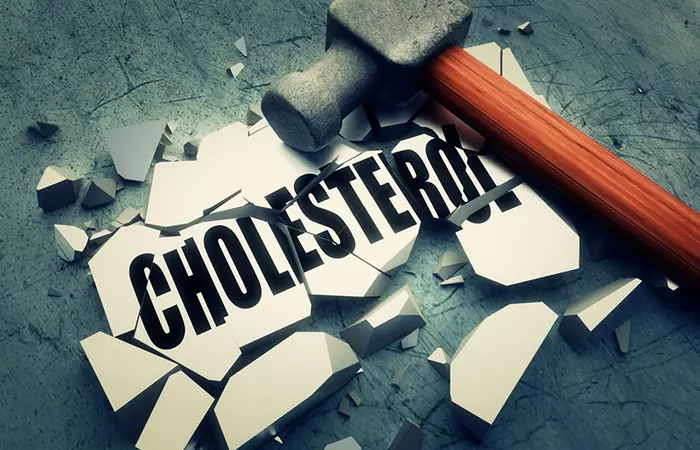
Zucchini is one of the few foods that are free of cholesterol, and hence you can include it in your cholesterol-lowering diet (25). Soluble fiber has been found to interfere with cholesterol absorption. This helps lower the bad cholesterol or LDL in the blood ( 26).
6. Helps Cure Asthma
As per an Iranian study, the high levels of vitamin C in zucchini help cure asthma (27). The anti-inflammatory properties of zucchini also contribute to asthma treatment (28).
Along with vitamin C, zucchini also contains copper which is far more effective in treating asthma (29).
One Finnish study has found the benefits of vitamin C in treating not only asthma attacks, but also bronchial hypersensitivity (which is a characteristic of asthma) (30). As it is well known that vitamin C helps treat common cold symptoms, it is quite logical to use vitamin C for alleviating asthma symptoms.
7. Protects Against Colon Cancer
Ah, it’s fiber again! The fiber in zucchini is the most important reason it can help in the treatment of colon cancer ( 31). The fiber does multiple things – it absorbs the excess water in the colon, retains enough moisture in the fecal matter, and helps it to pass smoothly out of the body. Because of all this, fiber works beautifully well in preventing colon cancer ( 32). Though precise knowledge about the subtypes of fiber (soluble or insoluble) in this aspect is important, dietary fiber as a whole has been linked to a reduced risk of colorectal cancer ( 33).
As per a Los Angeles study, dietary fiber plays an important role in regulating normal intestinal functioning and maintaining a healthy mucus membrane of the intestine. Though the exact amount of fiber and the type is still not clearly known, an expert panel from the study had recommended a fiber intake of 20 to 35 grams per day to prevent colon cancer (34).
The lutein in zucchini may also reduce the risk of colon cancer ( 35).
8. Enhances Digestion
In addition to the many benefits of zucchini you have already seen, the wonder squash also aids digestion ( 36). From studies, green fruits and vegetables, like zucchini, promote healthy digestion (37). You can have zucchini as an after-meal eat – simply shred some carrots and zucchini on a quick bread or muffins and relish the taste (and the benefits too!).
Many anecdotal studies suggest that the late Henry Bieler (a prominent American physician who had batted for the idea of treating disease with foods alone) used to treat digestive issues in his patients with a pureed soup broth made from zucchini. Now, isn’t that a reason good enough to entrust the ‘digestive-healing responsibilities’ to our humble zucchini?
The dietary fiber in zucchini adds bulk to your diet and aids digestion (38). However, ensure you introduce fiber in your diet gradually. Increasing dietary fiber in your diet too quickly can lead to bloating, abdominal cramps, and even gas ( 39).
It has been found that dietary fiber forms the major components of foods that have low energy value, and hence are of particular importance ( 40). Especially when it comes to dealing with abdominal issues.
If you are suffering from digestive issues, simply including zucchini in your meal might do the trick. It has been found that the addition of fiber in bread, cookies, breakfast cereals, and even meat products was found to have desirable results (41).
As we have already seen, zucchini contains both soluble as well as insoluble fiber. The insoluble fiber, also known as ‘the regulator’, accelerates the passage of water through the digestive tract. This reduces the time available for harmful substances to come in contact with the intestinal walls (42).
I would recommend you to go for all-natural sources of fiber, and not just zucchini alone. If you are purchasing fiber-rich foods from the supermarket, there is but one ground rule – a good source of fiber is one that has at least 2.5 grams of fiber per serving. Foods having more than 5 grams of fiber per serving are excellent. But, anything lower than 2.5 grams would just be a waste of money.
9. Lowers Blood Pressure
If you walk down a random street and pick any person you first see, chances are (s)he might be (or is likely to be) suffering from high blood pressure. If you ask us, blood pressure is more of a mind thing. We are so stressed about everything in life that blood pressure issues have become inevitable. Almost.
But with zucchini by our side, there is hope for respite.
Zucchini, being rich in potassium, is one of the most preferred foods to combat hypertension( 43),(44). Surprisingly enough, zucchini has more potassium than a banana.
Potassium is vasoactive, meaning it can affect the diameter of blood vessels (45). And hence, the blood pressure as well (46). In a London study, potassium supplementation was linked to lowered blood pressure levels (47). Though the study talks about certain conflicting results in pertinence to oral potassium supplementation, potassium was never shown to elevate blood pressure levels. Hence, it can be used without apprehension.
As per another New Orleans study, potassium intake is mandatory to combat hypertension, especially when the individual is unable to reduce his/her sodium intake (48). In addition to controlling blood pressure, potassium also lowers the heart rate and counters the harmful effects of sodium (49).
According to the National Academies Press, the adequate intake of potassium for adults is 4.7 grams per day (50). As per WHO, this dosage of potassium had the greatest impact on blood pressure levels (51). However, this dosage might vary as per the health condition of an individual. Hence, consult your doctor for further details.
So, why is potassium so important with respect to lowering blood pressure? Because the nutrient is one of the principal electrolytes in the human body (52). It is required in proper balance with sodium, in a ratio of 2:1. The junk foods we so very lovingly consume every other day have higher levels of sodium than potassium. This is why they contribute to high blood pressure like no other. Zucchini is a good source of potassium. A medium-sized fruit offers 512 milligrams of nutrient, which roughly equals 11% of your daily need.
10. Slows Down Aging
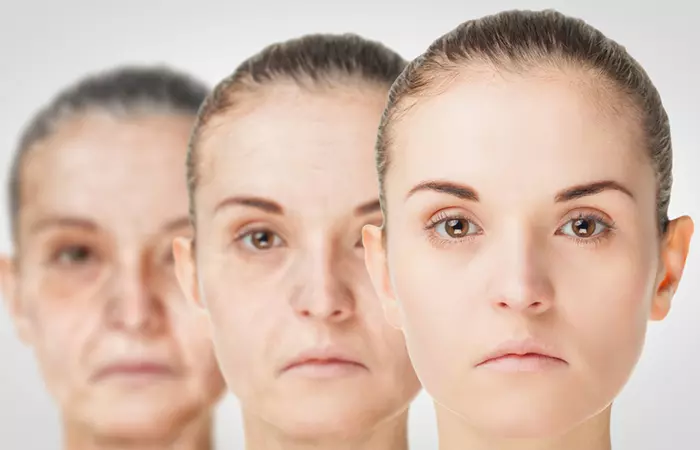
Anti-aging is a big market today. No less than a billion-dollar industry. But you probably wouldn’t have to contribute much to that segment if you have zucchinis in your kitchen.
Zucchini is a good source of the antioxidants lutein and zeaxanthin. These two carotenoidsi Pigments responsible for the yellow, red, and orange colors in plants, algae, and photosynthetic bacteria. exhibit powerful anti-aging properties (53). They protect the cells of the body and the skin from free radical damage, which may otherwise lead to premature aging. Lutein and zeaxanthin have also been found to lighten the skin and improve its health (54).
In a study, lutein was found to prevent cell loss and membrane damage (55). It also has photoprotective properties that protect the skin from UV damage. Zucchini is also rich in beta-carotene, the low levels of which were found to increase mortality risk in older men (56).
The riboflavin in zucchini maintains the health of the skin, hair, nails, and mucus membranes. It slows down aging by boosting athletic performance and preventing age-related memory loss and other related conditions like Alzheimer’s disease (57).
In one study, riboflavin was found to prolong the lifespan of fruit flies – indicating a similar possibility in human beings (58).
Zucchini, as we have seen, is rich in vitamin C. According to a South Korean study, the vitamin was found to decelerate aging in human heart cells (59). Also, vitamin C is found in high levels in the skin layers, the content of which sees a decline due to aging (60). Hence, intake of vitamin C appears to be a logical solution to slow down the signs of aging.
11. Strengthens Bones And Teeth
Green vegetables and fruits, like zucchini, promote stronger bones and teeth (61). The lutein and zeaxanthin in zucchini keep the bones and teeth strong ( 62). In addition, they also strengthen the blood cells. Zucchini also contains vitamin K, which contributes to stronger bones (63).
Magnesium is another nutrient zucchini is rich in. Most of the body’s magnesium resides in the bones, which helps build strong bones and teeth ( 64). Magnesium also works along with calcium to improve muscle contraction.
The folate in zucchini also protects the bones (65). And so does beta-carotene. Studies show that the body converts beta-carotene into vitamin A, which contributes to bone growth (66).
Zucchini contains phytochemicals such as indoles, which help maintain strong bones and teeth (67). Similar findings have been published by the California Department of Public Health.
12. Helps Balance Thyroid And Adrenaline Function
Zucchini is rich in manganese, a mineral that promotes the optimal functioning of the thyroid gland (68), (69).
13. Helps During Pregnancy
Dark green vegetables are a must during pregnancy, and zucchini is one of them (70). In the nine months of pregnancy, consuming zucchini offers adequate B-complex vitamins that help maintain energy levels and mood.
Zucchini is rich in folic acid that has been shown to reduce the risk of certain birth defects like spina bifida (the baby’s spinal cord doesn’t develop properly) and anencephaly (absence of a major portion of the brain) (71). As per a Canadian study, over 50 countries that have fortified their food staples with folic acid saw a dramatic decrease in neural tube defects in pregnant women ( 72).
One more reason folate is beneficial to pregnant women is its ability to produce red blood cells in the body ( 73). This is how it reduces the risk of developmental problems in the baby during pregnancy.
It is important to keep in mind that folic acid (or folate) works best when taken before getting pregnant and during the first trimester (74). As women need additional folic acid during pregnancy, it is advisable to take a folic acid supplement as well. Around 400 mcg of folic acid per day is recommended for women in this aspect.
Another reason zucchini is good for pregnancy is its magnesium content. As per an Italian study, magnesium is very important for women with a high risk of gestosisi Disorders caused by pregnancy-related changes in women with symptoms like high blood pressure and cloudy urine. or premature labor (75).
14. Good For Babies (And Kids)
Diarrhea is one common problem amongst most kids over one year of age. Oh yes, there will be medications. But changes in the diet can also help. Bland foods work well in this case (76). And peeled zucchini can do wonders.
Mashed zucchini can also be a good addition to your baby’s diet ( 77). Since it is soft and bland in taste (and since it comes replete with nutrients), your baby will be able to consume it easily. And here’s a tip – Never leave a baby alone when he/she is eating. Keep the portions small. And avoid those foods that he/she can easily choke on – these include everything that is hard to chew.
There is no need to emphasize the negative effects smoking can have on pregnant women. But, what if a woman has been a smoker for a long time before getting pregnant and just can’t give the habit up? In one Portland study, the intake of vitamin C has been found to prevent lung problems in babies born to pregnant smokers (78). Zucchini, being rich in vitamin C, can help in this regard. By the way, this doesn’t mean it is okay to smoke during pregnancy. It simply isn’t. But, in case the idea of quitting smoking disturbs the mother more than smoking itself, this could be an alternative.
In another Denmark study, the deficiency of vitamin C was found to impair brain development in infants (79).
In fact, the importance of vitamin C for infants was discovered way back in the early 1900s. Studies conducted back then stressed the significance of vitamin C in preventing scurvy in infants (80). Dr. F.R. Klenner, between 1948-49, cured every polio case in children with vitamin C, and vitamin C only (81). Of course, polio is eradicated today. This is just to show how important vitamin C (which zucchini is extremely rich in) has been in the development of humanity.
According to an American study, deficiency of folate during infancy can put the kids at a higher risk of depression in their adulthood ( 82).
15. Helps Prevent Gout
Zucchini’s vitamin C grabs the spotlight, yet again. One study has linked vitamin C intake with a lower risk of gout in men (83). It achieves this by lowering serum uric acid levels via a process called the uricosuric effect. The vitamin was also found to prevent not just gout, but numerous other urate-related diseases as well (84).
You can also intake zucchini to complement your gout treatment or if your treatment isn’t working well (85). And with respect to the vitamin C dosage in this regard, talk to your doctor.
Including zucchini in your diet can help prevent gout. And it’s pretty easy as well – as its mild taste combines properly with most recipes.
Though gout generally affects men over the age of 40 or anyone with a family history of the disease, it can occur anytime. To anyone. It is caused due to the excessive build-up of uric acid in the body, leading to its accumulation in tissues in the form of needle-shaped crystals. But, worry not – apart from taking zucchini and other foods rich in vitamin C, something as simple as drinking 6 to 8 glasses of water daily can prevent gout (86), ( 87).
16. Promotes Prostate Health

When it comes to men’s health, zucchini is one of the vegetables that is often overlooked. But, seldom does one know that its phytonutrients greatly benefit the prostate ( 88). The high carotenoid content of zucchini also associated with a reduced risk of prostate cancer (89).
We have seen that zucchini is rich in beta-carotene and vitamin C. Both of these nutrients, as per a study, were found to be positively associated with prostate cancer (90). Vitamin C reduces oxidative DNA damage and hampers the growth and ability of prostate cancer cells (91).
And we have lutein in zucchini too. As per a report published by the University of California San Francisco, lutein is inversely associated with prostate cancer (92).
Dietary fiber has been found to bind with carcinogens and eliminate them from the body. It also has the ability to prevent prostate cancer progression. And phytonutrients protect the cells from damage (93). Both of these healthy compounds are abundant in zucchini, making it useful for prostate cancer prevention.
17. Aids Collagen Formation
As we have seen, zucchini contains riboflavin, whose deficiency was found to affect the maturation of collagen ( 94). One more reason zucchini can be great for the skin is its high water content – which has been found to enhance skin health tremendously.
Vitamin C in the squash plays a major part in the synthesis of collagen, which, as we know, is quite important to maintain the health of joints, cartilage, skin, and blood vessels (95). The vitamin also protects the body from cellular damage (96). In addition to collagen, vitamin C also helps in the production of elastin, both of which are essential for radiant and healthy skin ( 97).
Apart from vitamin C, a few other nutrients that contribute to collagen formation are potassium, zeaxanthin, and folate (98). And, like we have seen, zucchini is replete with these.
We have seen vitamin C can slow down aging. But did you know that it is collagen that keeps the skin firm and protects it from wrinkles (99)?
18. Helps In Skin Hydration
There is a reason zucchini is also called summer squash. Zucchini health benefits also include hydrating the body (and the skin) and helps it deal with the summer heat.
The lutein in zucchini encourages skin health by reducing inflammation responses. But how does that promote skin hydration? Well, here’s the science behind it. When the skin is exposed to sunlight, lutein reduces the inflammation response (100). This means the sunlight will cause less damage to the skin, and that means less damage to the moisture barrier of the skin as well. And the result? Well-hydrated skin.
We have an interesting fact here – zucchini is 95% water (101). This obviously means it hydrates the skin well. But yes, there is one thing to be kept in mind – only about 20% of our daily water intake is met through food. Hence, it is important that we drink 8-10 glasses of water every day because the skin cells need water to function at their best ( 102).
19. Improves Brain Functioning And Memory
Green foods, especially zucchini, are rich in folate and are excellent for brain health ( 103). Folate also helps in the production of DNA and RNA, the body’s genetic material. The nutrient, apart from improving mental health, also enhances emotional health (104).
The deficiency of folate is linked to megaloblastic anemia, which results in weakness and fatigue. Increased folate intake has been linked to a reduced risk of dementia and Alzheimer’s disease in women (105).
Also, our brain is 75% water. When there is adequate water in your system, you will be more focused, think quickly, and also display greater creativity. More importantly, sufficient water efficiently delivers nutrients to your brain and aids toxin removal. This results in enhanced concentration and mental alertness ( 106). Zucchini, apart from being rich in water, also contains vitamin C, zinc, and omega-3 fatty acids – all of which largely contribute to brain health (107).
Though not very rich in iron, zucchini contains the nutrient in acceptable amounts. As per a study, early iron deficiency can lead to permanent neurobehavioral problems despite diagnosis and treatment (108). Early iron deficiency can even affect the brain’s physical structure. Iron is also important for producing myelin, the fatty sheath that coats the brain’s nerves and accelerates brain communications (109).
20. Promotes Hair Growth

Zucchini, being rich in zinc, promotes hair growth (110). Vitamin C in zucchini can treat dry and splitting hair ( 111 ). It also makes your hair strands strong and supple (112). Lack of vitamin C can result in the enlargement of hair follicles, which might eventually stall hair growth (113). But, with zucchini by your side, that shouldn’t be a problem.
21. Enhances Immunity
You talk of immunity, and vitamin C is what comes to your mind, isn’t it? We are not going to tell you again that zucchini is an excellent source of vitamin C. A vitamin is an active form of ascorbic acid that boosts the immune system. And it does this in several ways. Firstly, vitamin C develops the body’s T cells (a type of white blood cells) into functional T cells that defend against diseases. It also helps you produce more immune cells. The antioxidant properties of vitamin C also prevent cells from dying due to inflammation. The RDA of vitamin C is 90 mg in males and 75 mg in females (114).
Low levels of vitamin C are linked to an increased risk of infection. In fact, high levels of vitamin C are frequently recommended for HIV-positive individuals to enhance their immunity (115).
In a Switzerland study, vitamin C and zinc were found to enhance immunity, so much that they had even improved the health of patients suffering from certain immune deficiency diseases like malaria and diarrhea (116).
Well, that’s the long list of benefits of zucchini, which highlights quite a few of the lesser known benefits of squash that can enhance your life. But how can you enjoy this versatile squash in your diet?
Well, that’s the long list of benefits of zucchini, that can make your life better. But how can you enjoy the squash in your diet?
Zucchini Nutrition Facts
Now check out the nutritional value of zucchini here:
| See the table below for in depth analysis of nutrients: Zucchini (Cucumis pepo), raw with skin | ||
| Nutrition value per 100 g. | ||
| (Source: USDA National Nutrient data base) | ||
| Principle | Nutrient Value | Percentage of RDA |
|---|---|---|
| Energy | 17 Kcal | |
| Carbohydrates | 3.11 g | 2.5% |
| Protein | 1.21 g | 2% |
| Total Fat | 0.32 g | 1% |
| Cholesterol | 0 mg | 0% |
| Dietary Fiber | 1 g | 3% |
| Vitamins | ||
| Folates | 24 µg | 6% |
| Niacin | 0.451 mg | 3% |
| Pantothenic acid | 0.204 mg | 5% |
| Pyridoxine | 0.163 mg | 13% |
| Riboflavin | 0.094 mg | 7% |
| Thiamin | 0.045 mg | 4% |
| Vitamin A | 200 IU | 7% |
| Vitamin C | 17.9 mg | 30% |
| Vitamin E | 0.12 mg | |
| Vitamin K | 4.3 µg | 4% |
| Electrolytes | ||
| Sodium | 8 mg | 0.5% |
| Potassium | 261 mg | 5.5% |
| Minerals | ||
| Calcium | 16 mg | 1.6% |
| Iron | 0.37 mg | 5% |
| Magnesium | 18 mg | 4% |
| Manganese | 0.177 mg | 8% |
| Phosphorus | 38 mg | 5% |
| Selenium | 0.2 µg | |
| Zinc | 0.32 mg | 3% |
| Phyto-nutrients | ||
| Carotene-ß | 120 µg | — |
| Crypto-xanthin-ß | 0 µg | — |
| Lutein-zeaxanthin | 2125 µg | — |
We have seen the unbridled goodness of zucchini till now. But, like anything that we get from nature, zucchini too has its little share of side effects.
Side Effects Of Zucchini
1. Digestive issues
Zucchini might cause digestive issues in people suffering from Irritable Bowel Syndrome (IBS). In such a case, consume it with caution. Or avoid it altogether .
Bitter zucchini might also cause stomach cramps or diarrhea or both (117).
2. Allergies
Zucchini might cause allergies in individuals who are sensitive to it. These include nausea, pruritus (severe skin itching), and certain kinds of oral allergies (118).
3. Alzheimer’s
Yes, this can be contradictory to what we spoke about before in the article. Iron does help prevent brain ailments. But studies suggest that too much of it can cause neurological conditions like Alzheimer’s ( 119). Though iron is not abundant in zucchini, it still is better to consider its effects.
4. Excessive beta-carotene
Since zucchini is a very good source of beta-carotene, this could be a concern for certain individuals. Large doses of beta-carotene might be inadvisable for pregnant and lactating women, people who smoke (beta-carotene supplements), people who have been exposed to asbestos (beta-carotene supplements), and individuals who have undergone angioplasty.
Beta-carotene might also interact with medications – especially the ones used for lowering cholesterol and other medicines like niacin.
These side effects need to worry you in case you happen to take zucchini in excess. Otherwise, it sure is a wonder-food. And now, sit back and entertain yourselves with these super facts about zucchini.
Cool Zucchini Facts
- One zucchini is called zucchina. (Ouch! We were wrong all the while!)
- The world’s largest zucchini was 69 1/2 inches long and weighed close to 30 kilos.
- Zucchini is the only fruit that starts with the letter Z.
- The most flavorful of zucchinis are usually small and have darker skin.
- Even the flower of the zucchini plant is edible. You can fry the zucchini blossoms into a delicacy.
- And lastly, the word zucchini comes from ‘zucca’, which is the Italian word for squash.
All good. But, tomorrow when you go the market, how do you even know which is good zucchini and which is not? That’s why…
Zucchini – Tips For Selection And Storage
How to select zucchini
Zucchini is usually picked and sold even before it matures. Hence, the seeds and skin are tender, and you can cook it even without peeling. This is why the zucchini must be clean and blemish-free. You must be able to pierce the skin easily with your fingernail.
Also, ensure the zucchini you select is small to medium in size. No more than 6 to 8 inches. Must be free of pricks and cuts. Much better if it has one inch of stem attached. Avoid longer or bigger zucchini.
How to store zucchini
Zucchini must be stored in a refrigerator. Remember to wrap it tightly (118).
Now we talk about freezing zucchini. If you want to freeze zucchini, choose the one with tender skin. Wash and slice it and scald for 3 minutes. Cool and drain and then pack it in a freezer container. You can also freeze shredded zucchini, provided you do it immediately.
If you are planning to grow zucchini in your backyard, you must remember that it grows best when surrounded by mulch, which keeps the soil moist. You also need to add two inches of water every week for the plant to thrive.
Once you have picked the right zucchini, what do you do? Simple. Enjoy it in your diet.
How To Prepare Zucchini
If you are wondering how to use zucchini? Then, don’t worry! Here are fews ways to cook zucchini:
1. As a healthy snack
Simply take raw zucchini sticks and snack on them with your favorite dip. You can also pack them in your lunchbox for a healthy afternoon snack.
2. Mashed Zucchini
Wondering what to use as a side dish for your meal? Zucchini! Steam it and mash it. You can then puree this with other root vegetables and serve. Much better (and healthier) than mashed potatoes!
3. Grilled Zucchini
Who said only meat can be thrown on the grill? Slice zucchini into 1/2-inch thick disks, brush them with cooking oil (heat tolerant), and season as you desire.
4. Stuffed Zucchini
Pretty simple. Cut the zucchini lengthwise and scoop out the insides. Fill the empty zucchini cups with chopped vegetables, meat, and cheese. Bake for about 40 minutes at 190o C, or until they turn golden brown. Serve while hot.
5. Use in salads
Make your salad healthier by adding zucchini to it. If you have some leftover zucchini after a grill-out, you can simply add it to your salad.
 Quick Tip
Quick TipThis was about how to eat zucchini in so many smart ways. All good. But, what about babies? How about them?
How To Make Zucchini For Baby
We have already seen somewhere in this article why zucchini can be wonderful for babies. It has a mild flavor. It is soft to chew. And it offers super good nutrients.
But, remember this – zucchini, particularly because of its skin, can cause a bit of stomach upset in some individuals. Hence, you must wait till your baby is eating stage 2 foods, which would happen when (s)he is around 8 months old (120).
In case your child is prone to stomach upsets, peel the zucchini before cooking and observe how your child receives it. If things are alright, you can try with the skin the next time.
Here is how you can cook zucchini for your child:
- Select a zucchini with a firm and shiny skin. It must be free of bruises and any other visible damage. Keep it unwashed in a plastic bag and store it in the refrigerator (until you are ready to cook it, which would usually be up to 4-5 days).
- Divide the zucchini widthwise into half. Prepare the zucchini one half at a time. You can keep the second half back in the refrigerator until you want to use it next time.
- Slice the end of the zucchini. Wash it thoroughly under a stream of cold water.
- Cut it into thin slices.
- Take a saucepan with cold water and bring it to a boil.
- Add the sliced zucchini to it. Once the water boils, decrease the heat to medium.
- Keep boiling the zucchini until it turns tender (this should take about 10 minutes).
- Drain the water and transfer the boiled zucchini into a food processor. Process it until it is completely pureed. You can add a little cold water if it appears too thick.
- Wait till the puree cools before you feed it to your little one. You can store the leftovers in a sealed container in the refrigerator for up to 2 days.
- You can prepare the other half of zucchini in a similar way.
However, it’s always best to consult your baby’s pediatrician before introducing new foods in his/her diet.
That was for the babies. But what about us adults? Read on for some of the most sumptuous zucchini recipes you will ever find.
Delicious Recipes Using Zucchini
Zucchini, without doubt, is a versatile summer squash. You can enjoy this low calorie food in several recipes. Here, we talk about 3 most popular ways of cooking zucchini:
1. Zucchini Lasagna
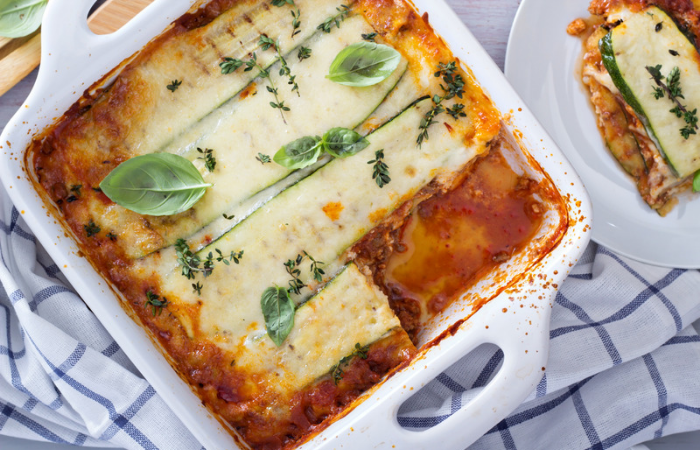
What You Need
- 2 large zucchinis
- 1 tablespoon of salt
- 1/2 kilo of ground beef
- 1 1/2 teaspoons of black pepper
- 1 small (and diced) green bell pepper
- 1 diced onion
- 1 cup of tomato paste
- 30 ml of tomato sauce
- 1/4 cup of red wine
- 2 tablespoons of fresh basil, chopped
- 1 tablespoon of fresh oregano, chopped
- Hot water (as you need)
- 1 egg
- 450 g of low-fat ricotta cheese
- 2 tablespoons of fresh parsley, chopped
- 1 pound of fresh mushrooms, sliced
- 220 g of grated Parmesan cheese
- 220 g of shredded mozzarella cheese
- 450 g of frozen spinach, chopped, thawed, and drained
Directions
- Preheat the oven to 165o C. Take a deep baking pan and grease it.
- Slice the zucchini lengthwise into thin slices. Sprinkle salt over them.
- For preparing the meat sauce, cook and stir the beef and black pepper in a skillet over medium heat for 5 minutes. Add onion and green bell pepper, and cook and stir until the meat is no more pink. Add the tomato paste, basil, wine, tomato sauce, and oregano and stir. Bring to a boil. Reduce the heat and simmer the sauce for about 20 minutes. Stir frequently.
- Stir the egg, parsley, and ricotta in a bowl.
- Spread half of the meat sauce at the bottom of the baking pan. Layer half the zucchini slices, half the ricotta mixture, the entire spinach, and all the mushrooms, and then half the mozzarella cheese. Repeat the same by layering the remaining zucchini slices, ricotta mixture, and the mozzarella.
- Spread Parmesan cheese evenly over the top and cover with foil.
- Bake for about 45 minutes and remove the foil. Raise the oven temperature to 175 o C and bake for an extra 15 minutes.
- Let it stand for 5 minutes. Serve.
2. Zucchini Soba Noodles
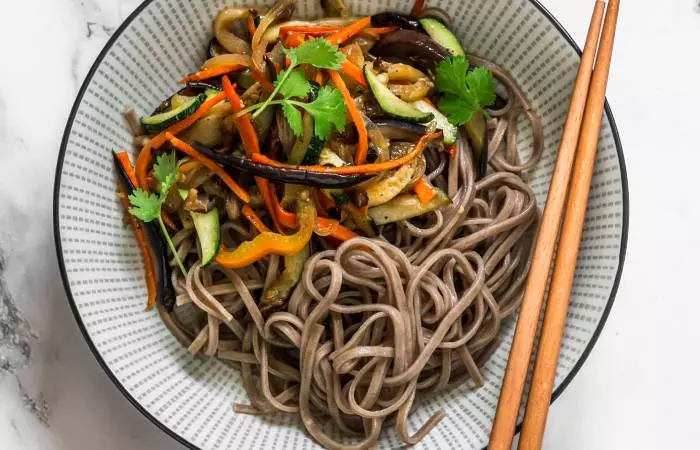
What You Need
- 120 g of soba noodles
- 2 to 3 grated cloves of garlic
- 1 tablespoon of grated ginger
- 1 tablespoons of water
- 1 tablespoon of olive oil
- 1/4 cup of soy sauce
- 1/2 thinly sliced red onion
- 1 thinly sliced yellow bell pepper
- 1 tablespoon of honey
- 1 small zucchini, cut into thin strips as noodles (equivalent to 2 cups)
- 2 to 3 tablespoons of toasted sesame seeds
Directions
- Boil water in a pot.
- Add the soba noodles and cook for about 4-5 minutes until tender. Drain and rinse under cold water and keep aside.
- Heat the olive oil over medium heat in a large skillet. Add grated ginger and garlic and cook for a minute. Add the soy sauce, honey, and water. Reduce to a simmer and cook for 2 minutes.
- To this soy sauce mixture, add the thinly sliced pepper and red onion. Cook for 3-4 minutes until tender.
- Add the zucchini noodles and keep stirring. Cook for about 1-2 minutes. You can add more soy sauce or honey if you want.
- Toss this with soba noodles and sprinkle with toasted sesame seeds. Serve.
3. Deep Fried Zucchini Chips

What You Need
- 3 medium-sized zucchinis
- 1 cup of flour
- 2 cups of Panko crumbs
- Salt, as required
- 1/4 cup of grated Parmesan cheese
- 2 tablespoons of water
- Vegetable oil, as required
- 2 eggs
Directions
- Heat 1 to 2 inches of the oil in a deep pan.
- Maintain the heat of the oil around 175o C as any lower temperature will make the zucchini soak up too much of the oil.
- Place the flour in a shallow bowl.
- Take another bowl and combine the Panko crumbs, Parmesan cheese, and 3/4 teaspoon of salt.
- Slice the zucchini into 1/2-inch thick circles. Coat them in flour, dip into the egg mixture, and then coat in the Panko crumbs. Fry until the chips turn golden brown on both the sides (90 seconds per side).
- Drain on paper towels. Season with salt and serve.
4. Stuffed Zucchini Boats
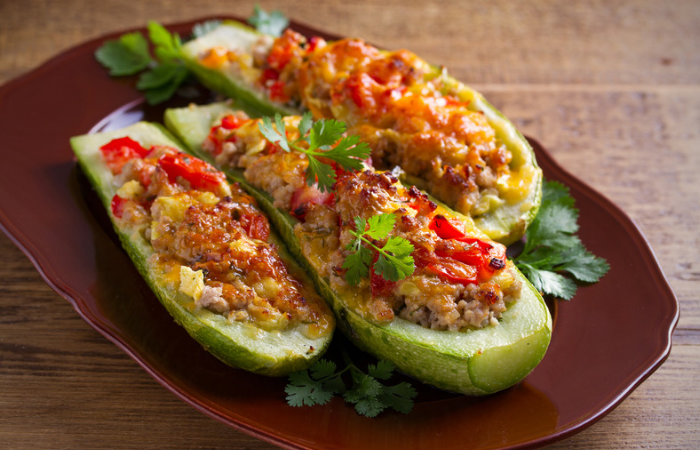
What You Need
- 2 large zucchinis (halved lengthwise)
- ½ cup of quartered cherry tomatoes
- 1 large egg (beaten)
- ¼ cup of pine nuts
- 1 cup of torn and crumbled crusty bread
- ½ minced garlic clove
- 2 tablespoons of fresh thyme leaves
- 2 teaspoons of lemon zest
- ⅔ cup of grated Parmesan cheese
- 5-6 drops of extra-virgin olive oil
- ½ cup of pesto
- Sea salt and black pepper, to taste
Directions
1. Preheat your oven to 475°F and add a baking sheet.
2. Hollow out the zucchinis and place them cut side-up on the baking sheet.
3. Combine in a bowl the scooped-out zucchini with egg, bread crumbs, cheese, garlic, tomatoes, lemon zest, thyme, pine nuts, and salt.
4. Drizzle the hollowed zucchini with olive oil.
5. Sprinkle some salt and pepper.
6. Fill them with the prepared mixture.
7. Bake them until the filling is set and golden brown on top.
8. Serve it with pesto.
Infographic: 4 Incredible Benefits Of Eating Zucchini
Zucchini is a low-calorie vegetable that is high in essential nutrients, making it an excellent addition to your diet. To help you out, we have rounded up the top 4 amazing benefits of zucchini you should know about. Check out the infographic below to know more!
Some thing wrong with infographic shortcode. please verify shortcode syntax
Zucchini is a summer squash with a unique nutrition profile. Rich in vitamin C, pyridoxinei A water-soluble vitamin naturally found in many foods that is required for the proper functioning of nerves. Also known as vitamin B6. , potassium, manganese, and other essential minerals, zucchinis help improve your heart, eye, respiratory, and bone health while delaying signs of aging and keeping your blood sugar and blood pressure levels under control. Zucchini also makes for a nutrient-rich food option for pregnant women and babies. Mashed, grilled, stuffed, soups, salads, or gravies, there are several easy ways to include zucchini in your diet.
Frequently Asked Questions
Can you eat zucchini raw?
Yes. In fact, it is the best way to eat it.
Is zucchini a fruit or a vegetable?
Fruit. Because it comes from a flower.
Does zucchini cause gas?
Eating raw zucchini might. This is because it contains cellulose (which makes up the walls of the cells of the plant). When you eat raw zucchini, the digestive enzymes in your body cannot break cellulose down. Hence, the intestinal bacteria take over. They feed on the cellulose to break it down. In the process, they release waste in the form of methane gas.
Cooked zucchini doesn’t cause gas. Instead, it prevents it. This is because heat weakens the cellulose bonds and breaks it down easily.
How to season zucchini?
You can steam 1-inch slices of zucchini for about 6 minutes. Season them with a little lime juice, a teaspoon of fresh thyme, a dash of cayenne pepper, and even salt.
Can you eat zucchini skin?
You can. In fact, you must. This is because, as we have seen, zucchini is 95% water. And most of this water is found in the flesh – which means most of the nutrients are found in the skin. Peeling the skin deprives you of vitamins C and K, fiber, potassium, antioxidants, and the other nutrients.
So, eating zucchini without the skin is almost like drinking plain water – only that you would be chewing in this case.
Are zucchini seeds edible?
Yes, they are.
How much of zucchini is too much?
There is conflicting information in this regard. Please consult your doctor for more information.
Is zucchini healthier than cucumber?
Zucchini is healthier because it has more protein, fiber, iron, potassium than cucumber (121), (122). Therefore, when comparing the nutritional value of zucchini and cucumber, zucchini comes out on top.
Hope you liked our post on benefits of zucchini. One of nature’s best. That is all I have to say. Include it in your diet. That’s it.
And yes, do let us know if you have liked this post. Do comment in the box below.
Illustration: Amazing Benefits Of Zucchini For Skin, Hair, And Health
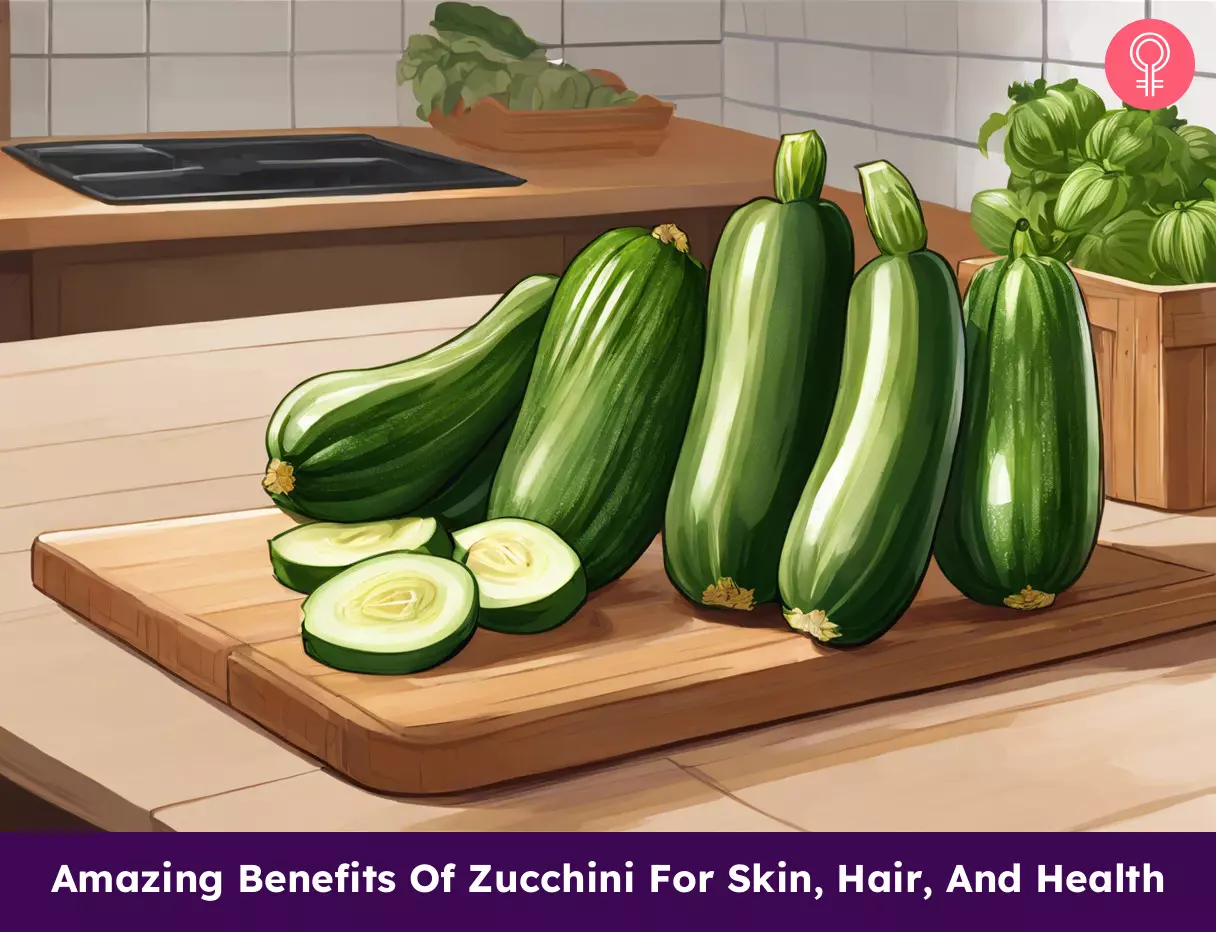
Image: Stable Diffusion/StyleCraze Design Team
Zucchini is a nutritious vegetable packed with vitamins and minerals. Watch this quick video to learn about the amazing health benefits it can provide!
References
Articles on StyleCraze are backed by verified information from peer-reviewed and academic research papers, reputed organizations, research institutions, and medical associations to ensure accuracy and relevance. Read our editorial policy to learn more.
- Transcriptome characterization and high throughput SSRs and SNPs discovery in Cucurbita pepo (Cucurbitaceae)
https://www.ncbi.nlm.nih.gov/pmc/articles/PMC3049757/ - Study the Effect of Different Levels of Zucchini ( Cucurbita pepo L.) on the Biological Indicators for the Prevention of Cardiovascular Disease in Rats Fed High-Fat Diets
https://www.researchgate.net/publication/339094354_Study_the_Effect_of_Different_Levels_of_Zucchini_Cucurbita_pepo_L_on_the_Biological_Indicators_for_the_Prevention_of_Cardiovascular_Disease_in_Rats_Fed_High-Fat_Diets - Dietary intakes associated with successful weight loss and maintenance during the Weight Loss Maintenance Trial
https://www.ncbi.nlm.nih.gov/pmc/articles/PMC3225890/ - Fiber and Prebiotics: Mechanisms and Health Benefits
https://www.ncbi.nlm.nih.gov/pmc/articles/PMC3705355/ - DASH Eating Plan
https://www.nhlbi.nih.gov/education/dash-eating-plan - Study the Effect of Different Levels of Zucchini ( Cucurbita pepo L.) on the Biological Indicators for the Prevention of Cardiovascular Disease in Rats Fed High-Fat Diets
https://www.researchgate.net/publication/339094354_Study_the_Effect_of_Different_Levels_of_Zucchini_Cucurbita_pepo_L_on_the_Biological_Indicators_for_the_Prevention_of_Cardiovascular_Disease_in_Rats_Fed_High-Fat_Diets - Dietary fibre intake and risk of cardiovascular disease: systematic review and meta-analysis
https://www.ncbi.nlm.nih.gov/pmc/articles/PMC3898422/ - Folate and risk of coronary heart disease: a meta-analysis of prospective studies
https://pubmed.ncbi.nlm.nih.gov/21924595/ - Potassium and magnesium depletions in congestive heart failure–pathophysiology consequences and replenishment
https://pubmed.ncbi.nlm.nih.gov/16272623/ - Riboflavin deficiency in infants and children with heart disease
https://pubmed.ncbi.nlm.nih.gov/941824/ - Riboflavin alleviates cardiac failure in Type I diabetic cardiomyopathy
https://pubmed.ncbi.nlm.nih.gov/22355488/ - Riboflavin
https://ods.od.nih.gov/factsheets/Riboflavin-HealthProfessional/ - Fruits and vegetables that are sources for lutein and zeaxanthin: the macular pigment in human eyes
https://www.ncbi.nlm.nih.gov/pmc/articles/PMC1722697/ - The Prevalence of Age-Related Eye Diseases and Visual Impairment in Aging: Current Estimates
https://www.ncbi.nlm.nih.gov/pmc/articles/PMC4139275/ - Vitamin A Contents Per Serving of Eleven Foods Commonly Consumed in Jordan
https://www.researchgate.net/publication/315792941_Vitamin_A_Contents_Per_Serving_of_Eleven_Foods_Commonly_Consumed_in_Jordan - Vitamin A and Vision
https://pubmed.ncbi.nlm.nih.gov/27830507/ - Dietary Patterns Carbohydrates and Age-Related Eye Diseases
https://www.ncbi.nlm.nih.gov/pmc/articles/PMC7551870/ - A Mechanistic Review of β-Carotene Lutein and Zeaxanthin in Eye Health and Disease
https://pubmed.ncbi.nlm.nih.gov/33114699/ - Effectiveness of restricted diet with a plate in patients with type 2 diabetes: A randomized controlled trial
https://www.sciencedirect.com/science/article/pii/S1751991822000687 - Dietary fiber and type 2 diabetes
https://pubmed.ncbi.nlm.nih.gov/11858448/ - The importance and effect of dietary fiber in diabetes prevention with particular consideration of whole grain products
https://pubmed.ncbi.nlm.nih.gov/17846978/ - Metabolic effects of dietary fiber consumption and prevention of diabetes
https://pubmed.ncbi.nlm.nih.gov/18287346/ - Dietary fibre and whole grains in diabetes management: Systematic review and meta-analyses
https://pubmed.ncbi.nlm.nih.gov/32142510/ - Therapeutic effects of soluble dietary fiber consumption on type 2 diabetes mellitus
https://www.ncbi.nlm.nih.gov/pmc/articles/PMC4950069/ - Study the Effect of Different Levels of Zucchini ( Cucurbita pepo L.) on the Biological Indicators for the Prevention of Cardiovascular Disease in Rats Fed High-Fat Diets
https://www.researchgate.net/publication/339094354_Study_the_Effect_of_Different_Levels_of_Zucchini_Cucurbita_pepo_L_on_the_Biological_Indicators_for_the_Prevention_of_Cardiovascular_Disease_in_Rats_Fed_High-Fat_Diets - Effects of Soluble Dietary Fiber on Low-Density Lipoprotein Cholesterol and Coronary Heart Disease Risk
https://www.researchgate.net/publication/23401666_Effects_of_Soluble_Dietary_Fiber_on_Low-Density_Lipoprotein_Cholesterol_and_Coronary_Heart_Disease_Risk - Determination of physical and mechanical properties of Zucchini (summer squash)
https://citeseerx.ist.psu.edu/viewdoc/download?doi=10.1.1.824.5756&rep=rep1&type=pdf - Diet wheeze and atopy in school children in Menorca Spain
https://pubmed.ncbi.nlm.nih.gov/17680906/ - Determination of physical and mechanical properties of Zucchini (summer squash)
https://www.researchgate.net/publication/259897952_Determination_of_physical_and_mechanical_properties_of_Zucchini_summer_squash - Vitamin C and common cold-induced asthma: a systematic review and statistical analysis
https://www.ncbi.nlm.nih.gov/pmc/articles/PMC4018579/ - High Fiber Diet
https://www.ncbi.nlm.nih.gov/books/NBK559033/ - Dietary fiber intake and risks of proximal and distal colon cancers
https://www.ncbi.nlm.nih.gov/pmc/articles/PMC6133424/ - Dietary fibre whole grains and risk of colorectal cancer: systematic review and dose-response meta-analysis of prospective studies
https://pubmed.ncbi.nlm.nih.gov/22074852/ - Fiber and colon cancer
https://pubmed.ncbi.nlm.nih.gov/2852641/ - Functional foods and their role in cancer prevention and health promotion: a comprehensive review
https://www.ncbi.nlm.nih.gov/pmc/articles/PMC5411786/ - “Dietary fibre”: moving beyond the “soluble/insoluble” classification for monogastric nutrition with an emphasis on humans and pigs
https://www.ncbi.nlm.nih.gov/pmc/articles/PMC6537190/ - Health Benefits of Fruits and Vegetables: Review from Sub-Saharan Africa
https://www.researchgate.net/publication/327187026_Health_Benefits_of_Fruits_and_Vegetables_Review_from_Sub-Saharan_Africa - Effects of Dietary Fiber and Its Components on Metabolic Health
https://www.ncbi.nlm.nih.gov/pmc/articles/PMC3257631/ - Inhibitory actions of a high fibre diet on intestinal gas transit in healthy volunteers
https://www.ncbi.nlm.nih.gov/pmc/articles/PMC1774297/ - Health effects of dietary fiber
https://pubmed.ncbi.nlm.nih.gov/24876314/ - Dietary fibre in foods: a review
https://www.ncbi.nlm.nih.gov/pmc/articles/PMC3614039/ - Gastrointestinal Transit Time Glucose Homeostasis and Metabolic Health: Modulation by Dietary Fibers
https://www.ncbi.nlm.nih.gov/pmc/articles/PMC5872693/ - FRUIT AND VEGETABLE CONSUMPTION AND THE INCIDENCE OF HYPERTENSION IN THREE PROSPECTIVE COHORT STUDIES
https://www.ncbi.nlm.nih.gov/pmc/articles/PMC5350612/ - Dietary Patterns and Their Association with Blood Pressure Control among Hypertensive Patients in Gaza Strip Palestine
https://www.researchgate.net/publication/328175037_Dietary_Patterns_and_Their_Association_with_Blood_Pressure_Control_among_Hypertensive_Patients_in_Gaza_Strip_Palestine - Role of potassium in regulating blood flow and blood pressure
https://pubmed.ncbi.nlm.nih.gov/16467502/ - Role of vascular potassium channels in the regulation of renal hemodynamics
https://www.researchgate.net/publication/51877832_Role_of_vascular_potassium_channels_in_the_regulation_of_renal_hemodynamics - Does potassium supplementation lower blood pressure? A meta-analysis of published trials
https://pubmed.ncbi.nlm.nih.gov/1649867/ - Potassium in preventing and treating high blood pressure
https://pubmed.ncbi.nlm.nih.gov/10511389/ - Potassium supplementation and heart rate: A meta-analysis of randomized controlled trials
https://pubmed.ncbi.nlm.nih.gov/27289164/ - Potassium
https://nap.nationalacademies.org/read/10925/chapter/7#187 - Guideline: Potassium Intake for Adults and Children
https://www.ncbi.nlm.nih.gov/books/NBK132470/ - Electrolytes
https://www.ncbi.nlm.nih.gov/books/NBK541123/ - Overall skin tone and skin-lightening-improving effects with oral supplementation of lutein and zeaxanthin isomers: a double-blind placebo-controlled clinical trial
https://www.ncbi.nlm.nih.gov/pmc/articles/PMC5063591/ - Lutein and zeaxanthin in eye and skin health
https://pubmed.ncbi.nlm.nih.gov/19168000/ - Regulation of the extracellular matrix remodeling by lutein in dermal fibroblasts melanoma cells and ultraviolet radiation exposed fibroblasts
https://pubmed.ncbi.nlm.nih.gov/17710425/ - The effects of serum beta-carotene concentration and burden of inflammation on all-cause mortality risk in high-functioning older persons: MacArthur studies of successful aging
https://pubmed.ncbi.nlm.nih.gov/15345737/ - Dietary Intake of Riboflavin and Unsaturated Fatty Acid Can Improve the Multi-Domain Cognitive Function in Middle-Aged and Elderly Populations: A 2-Year Prospective Cohort Study
https://www.ncbi.nlm.nih.gov/pmc/articles/PMC6727035/ - Anti-Aging Effect of Riboflavin Via Endogenous Antioxidant in Fruit fly Drosophila Melanogaster
https://pubmed.ncbi.nlm.nih.gov/28244572/ - Anti-aging effects of vitamin C on human pluripotent stem cell-derived cardiomyocytes
https://www.ncbi.nlm.nih.gov/pmc/articles/PMC3776090/ - The Roles of Vitamin C in Skin Health
https://www.ncbi.nlm.nih.gov/pmc/articles/PMC5579659/ - Mineral composition and potential nutritional contribution of 34 genotypes from different summer squash morphotypes
https://link.springer.com/article/10.1007/s00217-014-2308-7 - Carotenoids: How Effective Are They to Prevent Age-Related Diseases?
https://www.ncbi.nlm.nih.gov/pmc/articles/PMC6539799/ - Vitamin K and bone health
https://pubmed.ncbi.nlm.nih.gov/11684396/ - Listing of vitamins
https://www.health.harvard.edu/staying-healthy/listing_of_vitamins - Determination of physical and mechanical properties of Zucchini (summer squash)
https://www.researchgate.net/publication/259897952_Determination_of_physical_and_mechanical_properties_of_Zucchini_summer_squash - Variability in conversion of β-carotene to vitamin A in men as measured by a double-tracer study design
https://www.researchgate.net/publication/11393173_Variability_in_conversion_of_b-carotene_to_vitamin_A_in_men_as_measured_by_a_double-tracer_study_design - Phytochemicals and functional foods. Current situation and prospect for developing countries
https://www.researchgate.net/publication/237647199_Phytochemicals_and_functional_foods_Current_situation_and_prospect_for_developing_Countries/fulltext/025f9f650cf2576db5fb1512/Phytochemicals-and-functional-foods-Current-situation-and-prospect-for-developing-Countries.pdf - Squash summer zucchini includes skin raw
https://fdc.nal.usda.gov/fdc-app.html#/food-details/169291/nutrients - EFFECTS OF MANGANESE ON THYROID HORMONE HOMEOSTASIS
https://www.ncbi.nlm.nih.gov/pmc/articles/PMC2067987/ - Consumption of dairy fruits and dark green leafy vegetables is associated with lower risk of adverse pregnancy outcomes (APO): a prospective cohort study in rural Ethiopia
https://www.ncbi.nlm.nih.gov/pmc/articles/PMC6148027/ - Folic acid
https://www.cdc.gov/folic-acid/about/?CDC_AAref_Val=https://www.cdc.gov/ncbddd/folicacid/features/folic-acid-helps-prevent-some-birth-defects.html - Folic acid supplementation for pregnant women and those planning pregnancy: 2015 update
https://www.ncbi.nlm.nih.gov/pmc/articles/PMC4738404/ - Folic acid fortification increases red blood cell folate concentrations in the Framingham study
https://pubmed.ncbi.nlm.nih.gov/11739880/ - Use of folic acid supplements in the first trimester of pregnancy
https://www.researchgate.net/publication/11070349_Use_of_folic_acid_supplements_in_the_first_trimester_of_pregnancy - Role of magnesium in pregnancy
https://pubmed.ncbi.nlm.nih.gov/7603732/ - Diarrhea
https://www.ncbi.nlm.nih.gov/books/NBK448082/ - Breastfeeding and experience with variety early in weaning increase infants’ acceptance of new foods for up to two months
https://pubmed.ncbi.nlm.nih.gov/18838198/ - Vitamin C supplementation for prevention and treatment of pneumonia
https://www.ncbi.nlm.nih.gov/pmc/articles/PMC6513662/ - Does vitamin C deficiency result in impaired brain development in infants?
https://pubmed.ncbi.nlm.nih.gov/19161672/ - Scurvy in pediatric age group – A disease often forgotten?
https://www.ncbi.nlm.nih.gov/pmc/articles/PMC4411344/ - VITAMIN C AGAINST POLIO
https://citeseerx.ist.psu.edu/viewdoc/download?doi=10.1.1.462.5800&rep=rep1&type=pdf - Effects of vitamin B12 and folate deficiency on brain development in children
https://www.ncbi.nlm.nih.gov/pmc/articles/PMC3137939/ - Vitamin C Intake and the Risk of Gout in Men – A Prospective Study
https://www.ncbi.nlm.nih.gov/pmc/articles/PMC2767211/ - The effects of vitamin C supplementation on serum concentrations of uric acid: results of a randomized controlled trial
https://pubmed.ncbi.nlm.nih.gov/15934094/ - Diet in hyperuricemia and gout – Myths and facts
https://www.researchgate.net/publication/276113741_Diet_in_hyperuricemia_and_gout_-_Myths_and_facts - Role of Vitamin C in Prophylaxis and Treatment of Gout—A Literature Review
https://www.ncbi.nlm.nih.gov/pmc/articles/PMC7926958/ - Vitamin C Intake and the Risk of Gout in Men – A Prospective Study
https://www.ncbi.nlm.nih.gov/pmc/articles/PMC2767211/ - Phytochemicals in Prostate Cancer: From Bioactive Molecules to Upcoming Therapeutic Agents
https://www.ncbi.nlm.nih.gov/pmc/articles/PMC6683070/ - Role of Phytochemicals in Cancer Prevention
https://www.ncbi.nlm.nih.gov/pmc/articles/PMC6834187/ - Dietary beta-carotene vitamin C and risk of prostate cancer: results from the Western Electric Study
https://pubmed.ncbi.nlm.nih.gov/8862976/ - Association between Dietary Vitamin C Intake and Risk of Prostate Cancer: A Meta-analysis Involving 103658 Subjects
https://www.ncbi.nlm.nih.gov/pmc/articles/PMC4532989/ - Nutrition & Prostate Cancer
https://urology.ucsf.edu/sites/urology.ucsf.edu/files/uploaded-files/attachments/nutrition_and_prostate_cancer.pdf - Antioxidant Phytochemicals for the Prevention and Treatment of Chronic Diseases
https://www.ncbi.nlm.nih.gov/pmc/articles/PMC6331972/ - Impaired collagen maturity in vitamins B2 and B6 deficiency–probable molecular basis of skin lesions
https://pubmed.ncbi.nlm.nih.gov/6651795/ - Vitamin C (l-Ascorbic Acid): Antioxidant Involved in Skin Care
https://www.researchgate.net/publication/302044868_Vitamin_C_l-Ascorbic_Acid_Antioxidant_Involved_in_Skin_Care - Vitamin C in Disease Prevention and Cure: An Overview
https://www.ncbi.nlm.nih.gov/pmc/articles/PMC3783921/ - The Roles of Vitamin C in Skin Health
https://www.ncbi.nlm.nih.gov/pmc/articles/PMC5579659/ - Bioactive Compounds for Skin Health: A Review
https://www.ncbi.nlm.nih.gov/pmc/articles/PMC7827176/ - A Collagen Supplement Improves Skin Hydration Elasticity Roughness and Density: Results of a Randomized Placebo-Controlled Blind Study
https://www.ncbi.nlm.nih.gov/pmc/articles/PMC6835901/ - Lutein as a Modulator of Oxidative Stress-Mediated Inflammatory Diseases
https://www.ncbi.nlm.nih.gov/pmc/articles/PMC8470349/ - Determination of physical and mechanical properties of Zucchini (summer squash)
https://www.researchgate.net/publication/259897952_Determination_of_physical_and_mechanical_properties_of_Zucchini_summer_squash - Water Hydration and Health
https://www.ncbi.nlm.nih.gov/pmc/articles/PMC2908954/ - Nutrients and bioactives in green leafy vegetables and cognitive decline
https://www.ncbi.nlm.nih.gov/pmc/articles/PMC5772164/ - Folate Intake May Affect Emotional Intelligence (P24-032-19)
https://academic.oup.com/cdn/article/3/Supplement_1/nzz044.P24-032-19/5517213?login=false - Reduced risk of Alzheimer’s disease with high folate intake: The Baltimore Longitudinal Study of Aging
https://www.ncbi.nlm.nih.gov/pmc/articles/PMC3375831/ - Different Amounts of Water Supplementation Improved Cognitive Performance and Mood among Young Adults after 12 h Water Restriction in Baoding China: A Randomized Controlled Trial (RCT)
https://www.ncbi.nlm.nih.gov/pmc/articles/PMC7662706/ - MIND diet slows cognitive decline with aging
https://www.ncbi.nlm.nih.gov/pmc/articles/PMC4581900/ - Long-term Brain and Behavioral Consequences of Early Iron Deficiency
https://www.ncbi.nlm.nih.gov/pmc/articles/PMC3266848/ - Evidence for communication of peripheral iron status to cerebrospinal fluid: clinical implications for therapeutic strategy
https://pubmed.ncbi.nlm.nih.gov/32295615/ - Diet and hair loss: effects of nutrient deficiency and supplement use
https://www.ncbi.nlm.nih.gov/pmc/articles/PMC5315033/ - Hair and Food
https://www.researchgate.net/publication/328802583_Hair_and_Food - Foods For Healthy Hair Skin and Nails
https://www.researchgate.net/publication/342697508_Foods_For_Healthy_Hair_Skin_and_Nails - The hair growth promoting effect of ascorbic acid 2-phosphate a long-acting Vitamin C derivative
https://pubmed.ncbi.nlm.nih.gov/16406749/ - Vitamin C
https://www.ncbi.nlm.nih.gov/books/NBK225480/ - Vitamin E Vitamin C and Immune Response: Recent Advances
https://www.ncbi.nlm.nih.gov/books/NBK230984/ - Immune-enhancing role of vitamin C and zinc and effect on clinical conditions
https://pubmed.ncbi.nlm.nih.gov/16373990/ - Naturally Occurring Food Toxins
https://www.ncbi.nlm.nih.gov/pmc/articles/PMC3153292/ - Allergy caused by ingestion of zucchini (Cucurbita pepo): characterization of allergens and cross-reactivity to pollen and other foods
https://pubmed.ncbi.nlm.nih.gov/10932084/ - Impact of high iron intake on cognition and neurodegeneration in humans and in animal models: a systematic review
https://www.ncbi.nlm.nih.gov/pmc/articles/PMC5914328/ - Naturally Occurring Food Toxins
https://www.ncbi.nlm.nih.gov/pmc/articles/PMC3153292/ - Squash, summer, zucchini, includes skin, raw
https://fdc.nal.usda.gov/fdc-app.html#/food-details/169291/nutrients - Cucumber, with peel, raw
https://fdc.nal.usda.gov/fdc-app.html#/food-details/168409/nutrients
Read full bio of Joel Kahn
Read full bio of Ravi Teja Tadimalla
Read full bio of Arshiya Syeda
Read full bio of Sindhu Koganti






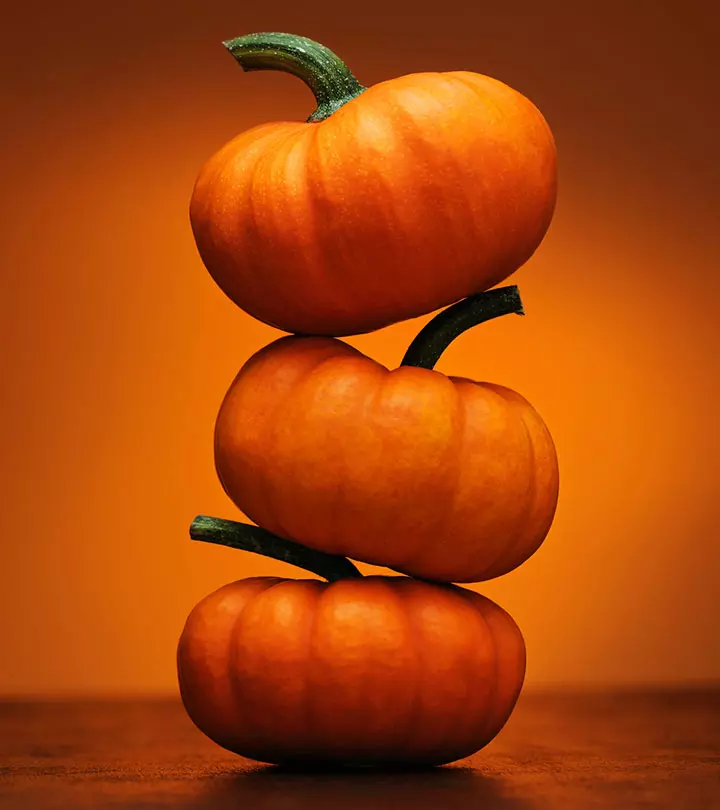
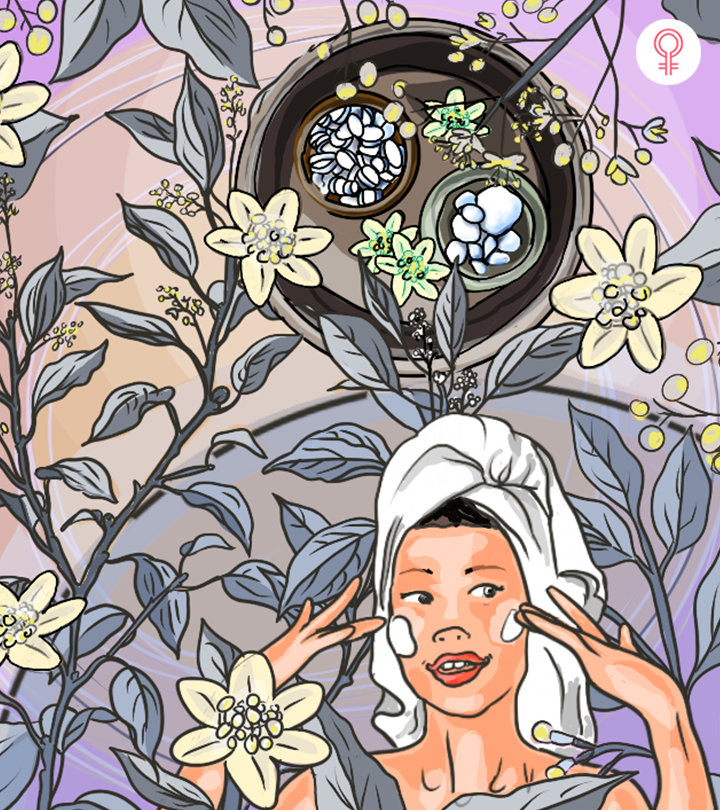
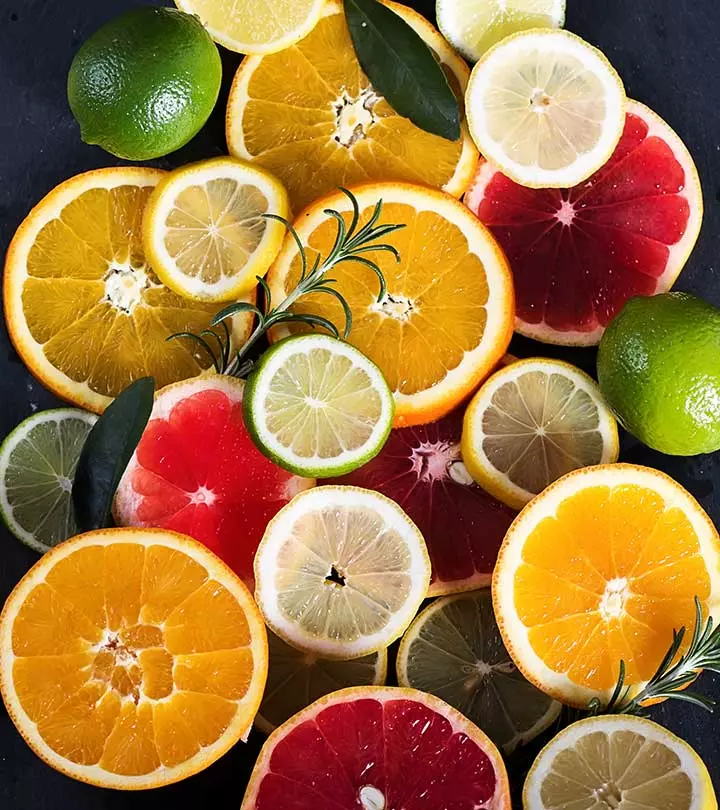

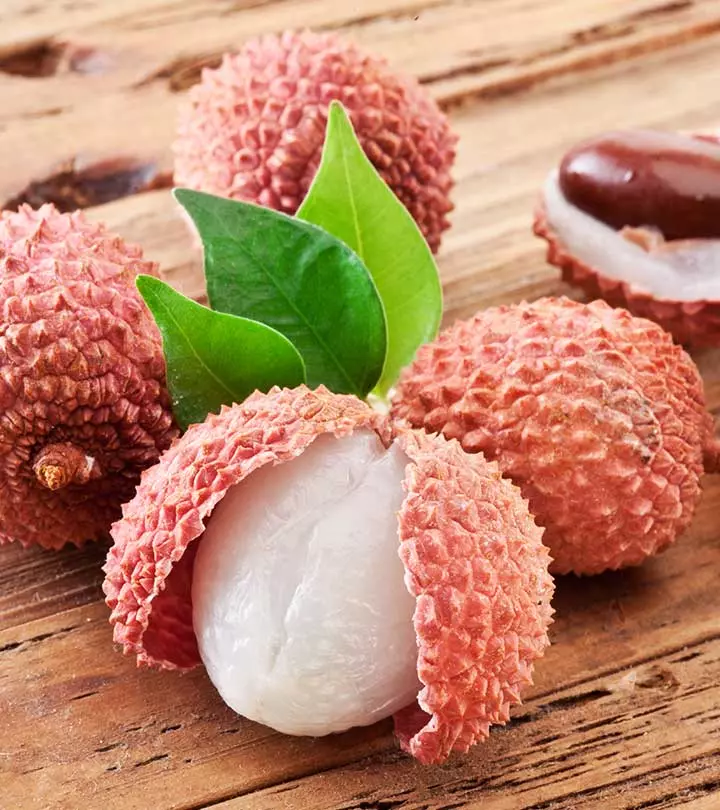
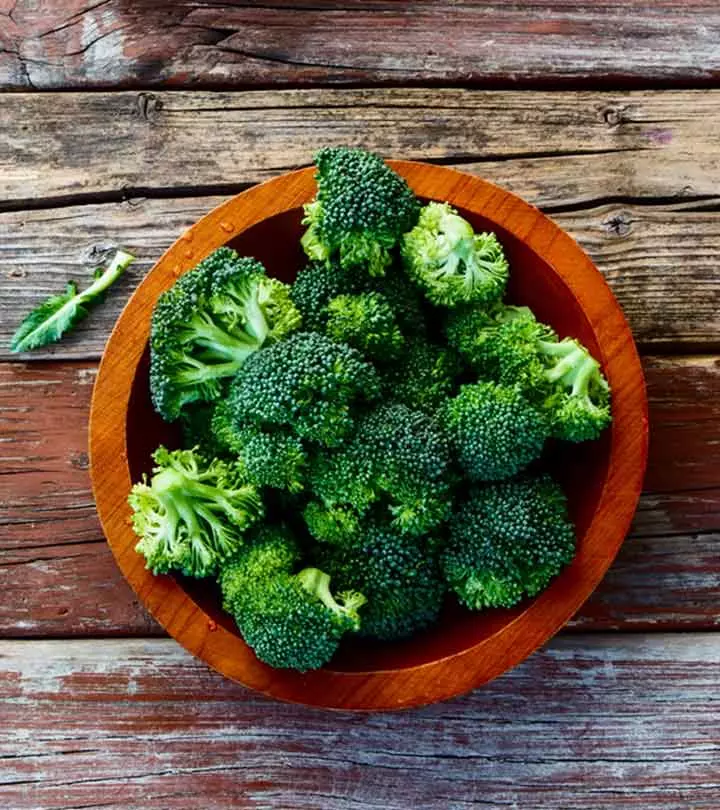
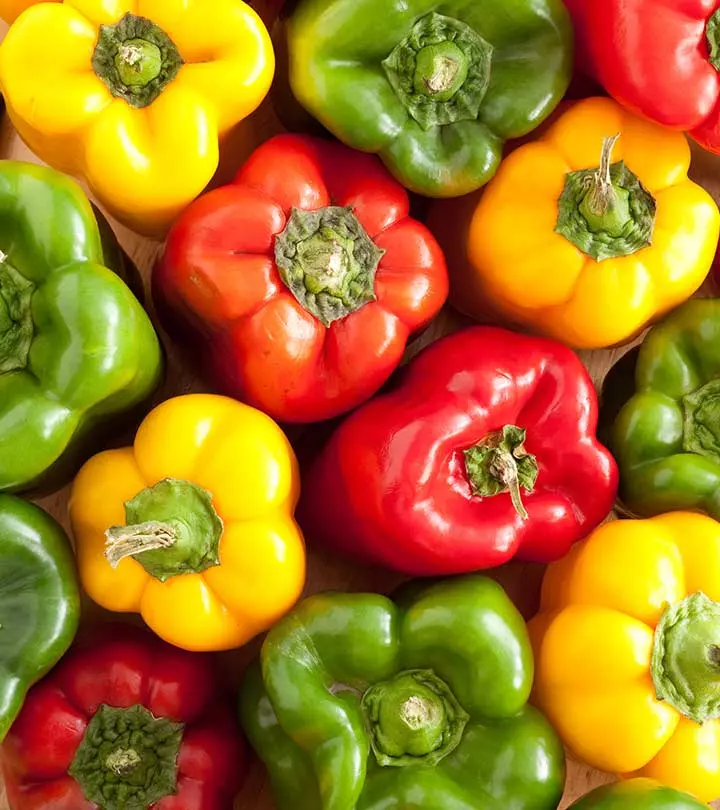
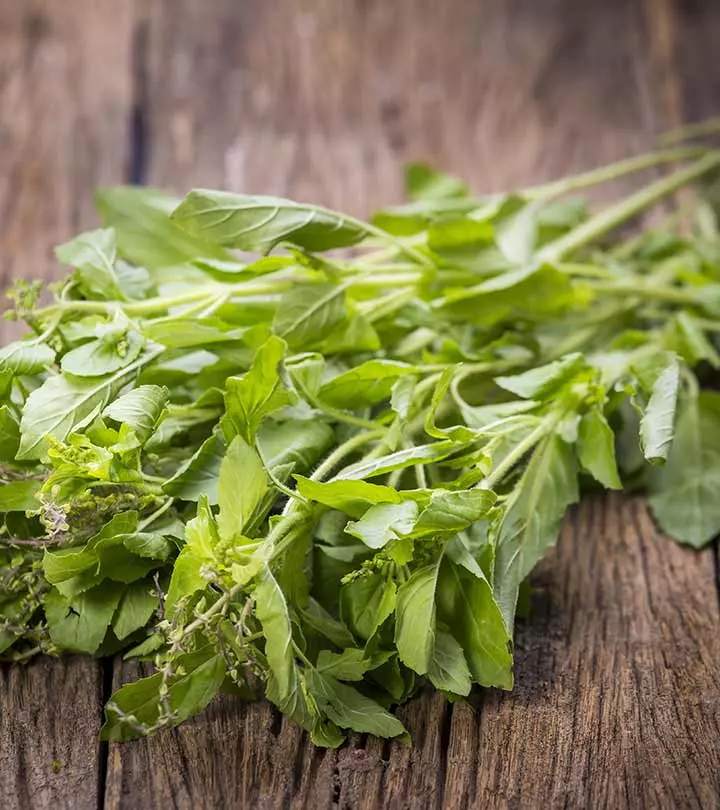
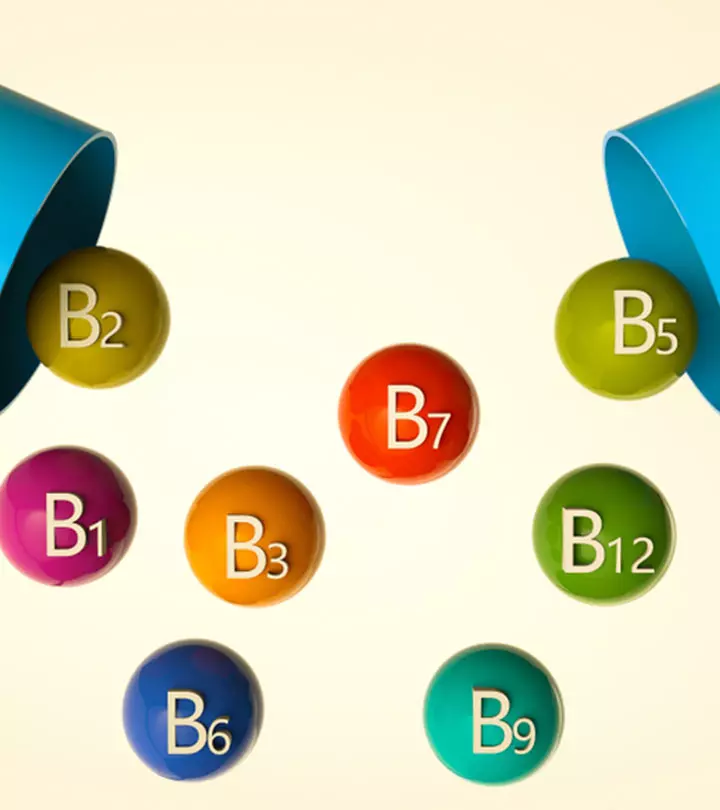

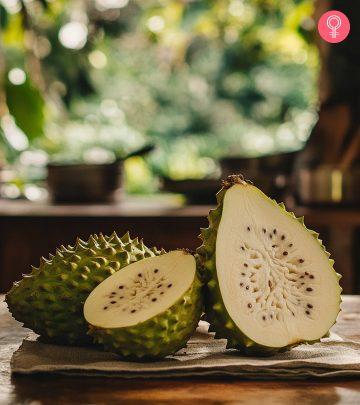
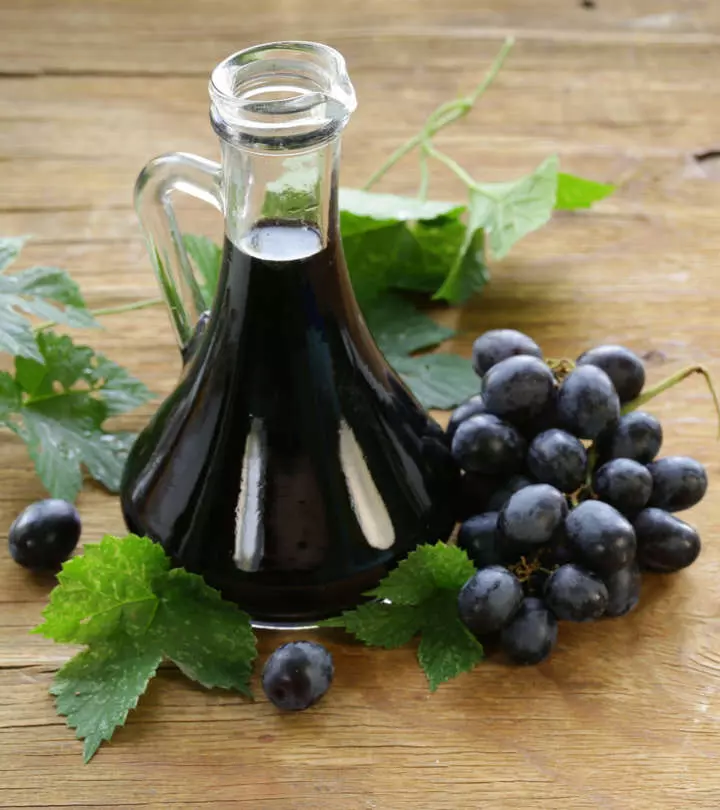
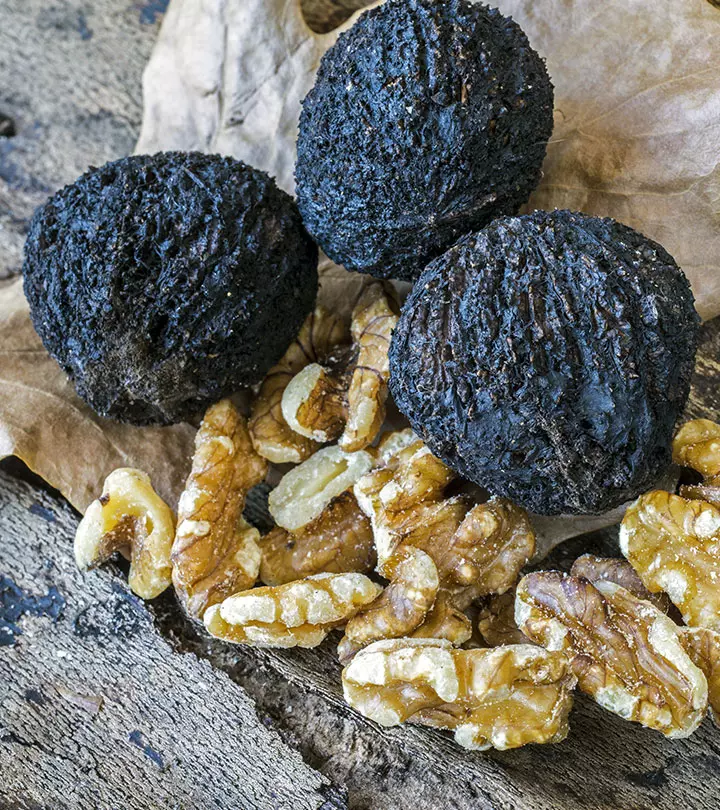

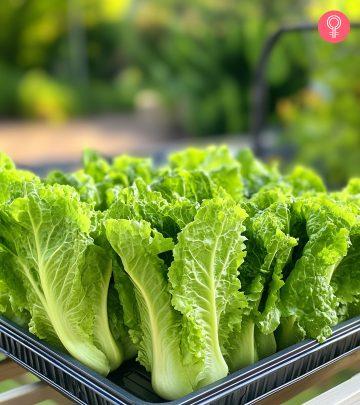
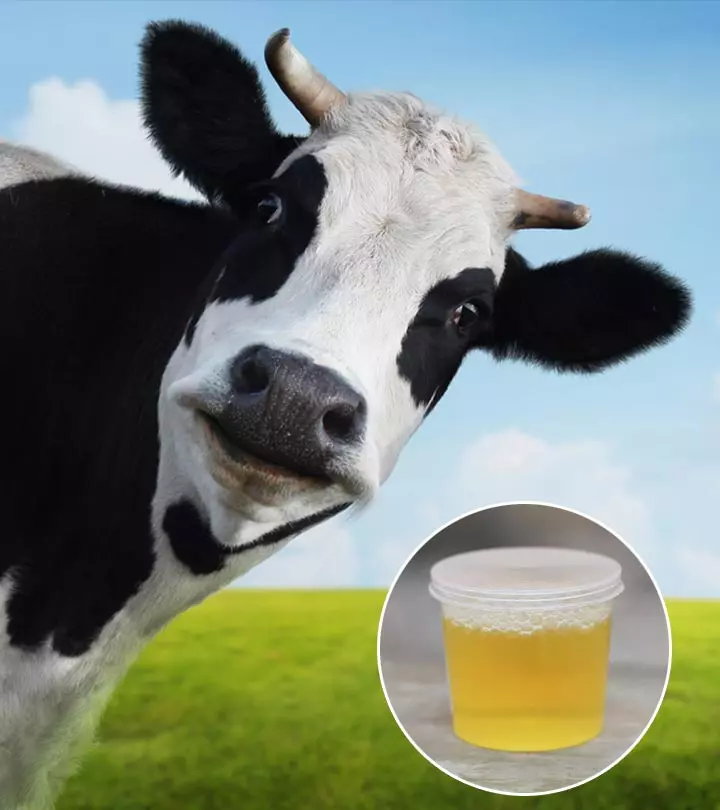

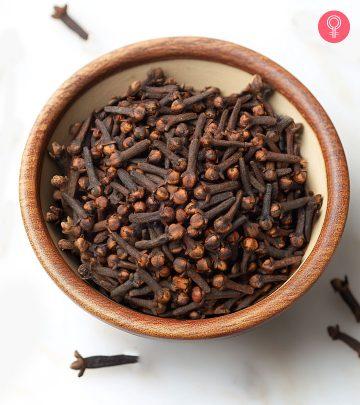
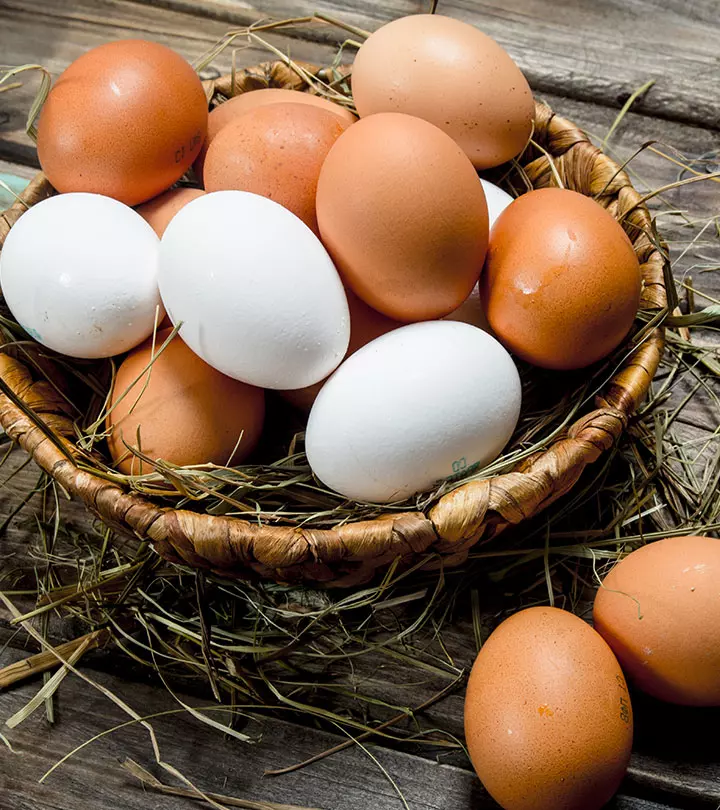
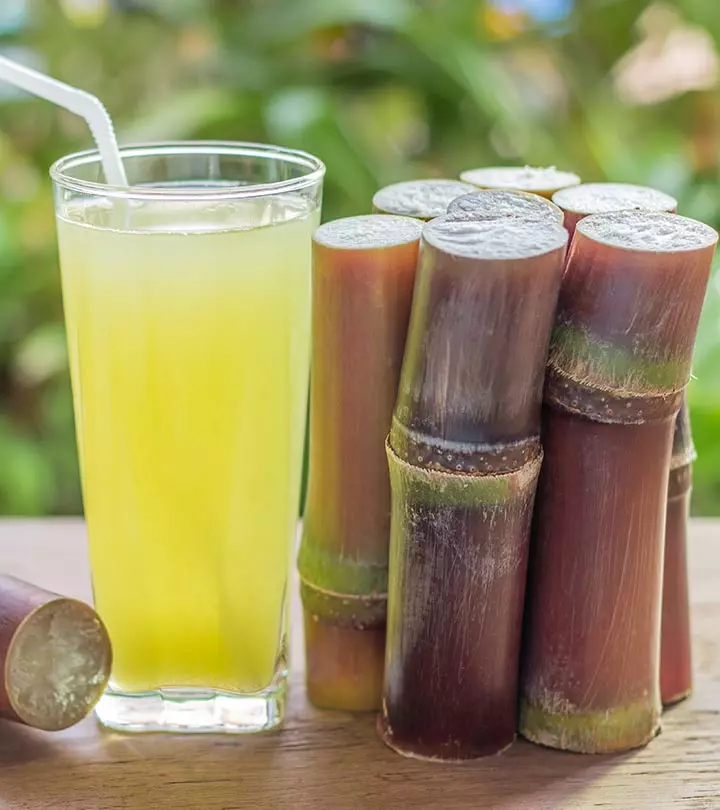
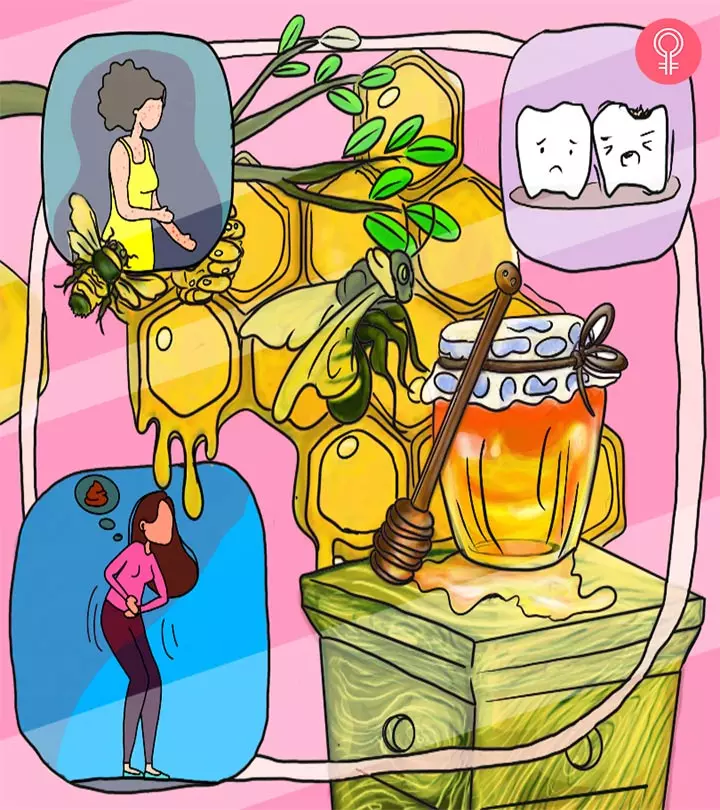
Community Experiences
Join the conversation and become a part of our empowering community! Share your stories, experiences, and insights to connect with other beauty, lifestyle, and health enthusiasts.